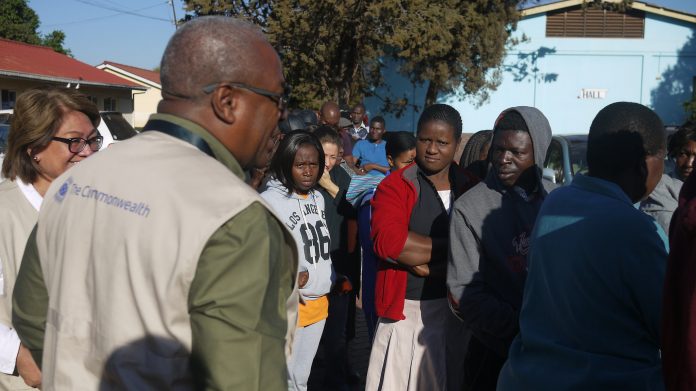The elections in Zimbabwe on 30 July, as well as the preceding electoral campaign, were held in a largely peaceful atmosphere, with an impressive engagement of the Zimbabwean people in this democratic process, crucial for the future direction of the country. However, following the shootings and violence that have in the past day already claimed lives of several people, in a Statement by the Spokesperson EU appeals for calm and restraint on all sides and for protests to be conducted according to the law.
According to the Statement, “Violence is completely unacceptable and we express our sympathy to the victims and their families.
“The first findings of the EU Election Observation Mission, headed by Chief Observer Elmar Brok, Member of European Parliament, indicate that the elections were competitive, and that overall political freedoms were respected during the campaign. Nevertheless a number of shortcomings were observed, including the lack of a truly level playing field. While the conduct of voting was well organised, it is now important that the final results are shared in a manner which provides for full transparency and accountability, including a breakdown by polling station.
“The Election Observation Mission will stay on the ground until the electoral process is completed before issuing its final report, including recommendations for the strengthening of Zimbabwe’s electoral framework.
“The European Union expects all stakeholders to allow the electoral process to run its course and be completed in full transparency and respect of the existing electoral framework. Any complaints must be addressed swiftly and effectively through the legal means already foreseen.
“The EU will continue coordinating with the African Union and Southern African Development Community (SADC) to strengthen Zimbabwe’s democratic institutions and processes.
“The European Union is ready to assist a democratically elected government in implementing political and economic reforms to ensure a peaceful and prosperous future for all Zimbabweans, and to respond effectively to evolving regional and global challenges.

